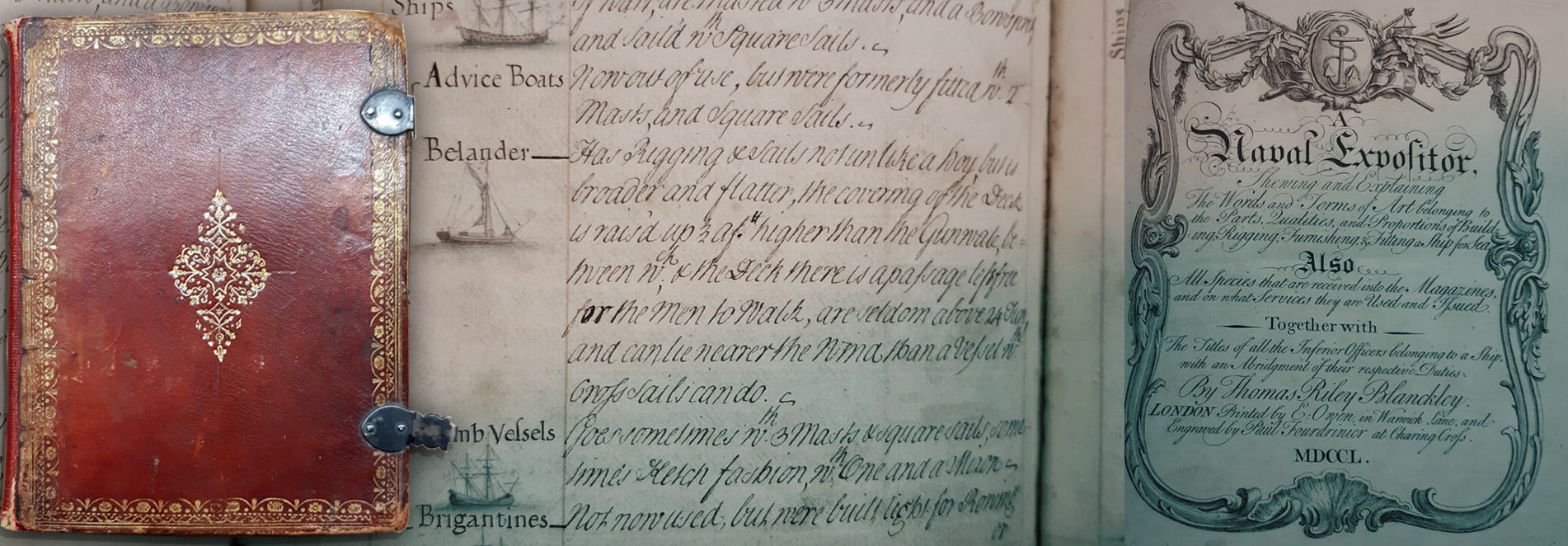Blanckley one name study
Blanckley one name study

Thomas Riley Blanckley’s plagiarism
Historical institutions, such as Royal Museums Greenwich, attribute the authorship of the first naval dictionary to Thomas Riley Blanckley, who published a lavish, pictorial dictionary, entitled A Naval Expositor, in 1750, three years after his father, Thomas Blanckley’s death.
However, T R Blanckley was only fifteen when the first, hand-written naval expositor was produced in 1732, and he admits in his own will that the work had been his father’s.
Did Thomas Riley Blanckley plagiarise the Naval Expositor?
When the world’s first naval dictionary, theNaval Expositor, was published in 1750, the elaborate frontispiece stated that the work was “by Thomas Riley Blanckley”.
Modern-day historians duly assume that Thomas Riley Blanckley authored the Naval Expositor. However, his will, proved on the 23rd of May 1753, attribute’s the expositor’s creation to his father, Thomas Blanckley:
“I give and bequeath all the manuscripts of my late father unto my beloved Brothers Stanyford Blanckley, George Blanckley and Henry Blanckley. Also I give and bequeath the copper plates and blank books of the Naval Expositor, composed by my late father and lately by me published”.
Was it truly plagiarism?
Thomas Riley Blanckley’s openness in his will suggests he’d not felt he had anything to hide.
Although modern historians attribute the Naval Expositor to Thomas Riley Blanckley’s, the supposition that he was its author might have been accidental. After all, the mass printed version of the expositor was, indeed, “by” Thomas Riley Blanckley, in the sense that it was produced at his request. It might not have occurred to him that later generations would believe he was the work’s first creator.
Thomas Riley Blanckley’s will can be viewed via Ancestry UK (subscription required): link
His will can also be viewed, free of charge, at the National Archives at Kew, London: link
Right: frontispiece of Thomas Riley Blanckley’s 1750 publication of the Naval Expositor (author’s photo, 2019)